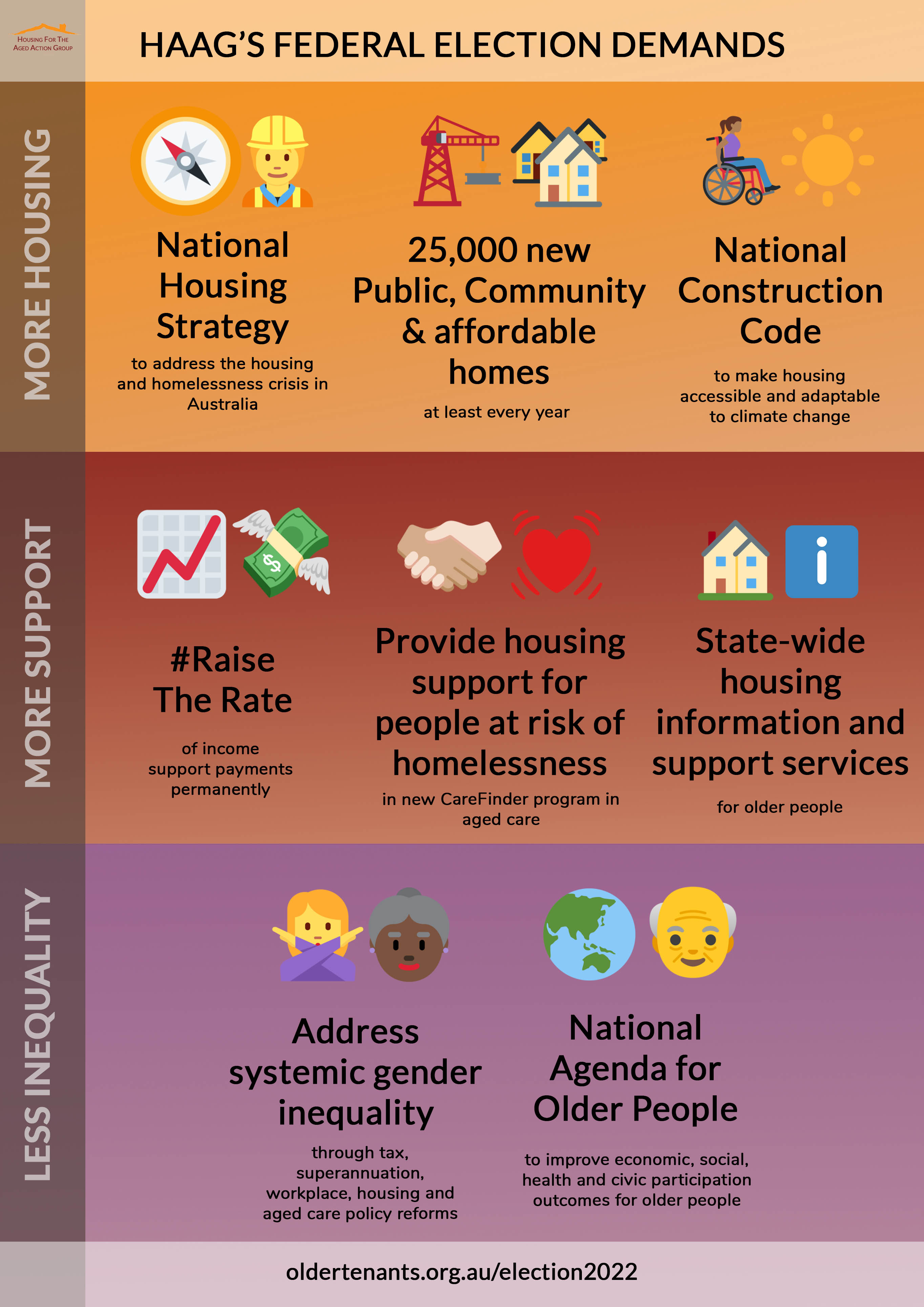As a new Labor government begins, and it gets to work on a new sizeable investment in social housing, it must ensure its housing policy is inclusive of older people, especially older women, according to Housing for the Aged Action Group (HAAG).
Labor’s housing policy, central to its campaign platform, includes a commitment to build 30,000 new social and affordable housing properties over five years. 4,000 of those properties will be allocated to women and children fleeing domestic and family violence, and older women on low incomes at risk of homelessness. That falls well short of what’s required, HAAG Executive Officer Fiona York says. Currently there are more than 400,000 women over 45 and at risk of homelessness.
“1 in 3 people in Australia know of an older woman – be it a friend, neighbour or grandmother – who is struggling to afford the rent,” York says.
“The situation is dire. So while we welcome the investment in social housing, we’d like to see at least 25,000 new public, community and affordable homes built every year.”
The new Labor Government is joined in parliament by a number of new independent candidates, all accomplished, community-minded women, who were elected with mandates to address climate change and matters of equality. The Greens, with its policy of one million new public, community and affordable houses, now has an historic four, possibly five, members in Parliament. “The Greens, the new independents, and the returning independent Zali Steggall, were elected on platforms of equality and respect,” York says.
“We look forward to seeing use them their newfound leverage to ensure housing policy is inclusive of older people, especially older women.”
“The swings against the two major parties show that voters want action on the things that matter – housing affordability, climate and equality – and we look forward to working with the new government to help them improve their housing policies.”
One pillar of Labor’s housing policy – it’s shared equity scheme for home buyers – will do little for older women who, through poor policy by successive governments, have been left with little savings or superannuation. These women are left to the mercy of Australia’s inadequate social security safety net.
“Labor should have committed to increasing the rate of income support long ago,” York says.
“Increasing JobSeeker and Commonwealth Rent Assistance would mean those who rely on it wouldn’t have to choose between paying rent, or other essentials like food and medicine.”



 "There is nothing like staying at home for real comfort."
"There is nothing like staying at home for real comfort."